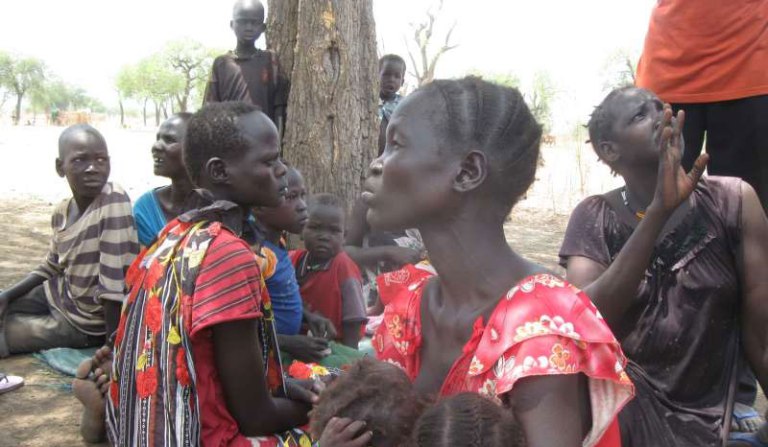SPLM-IO rebels say aid workers were killed by government

March 31, 2017 (JUBA) – South Sudanese rebels have accused the government of killing the six aid workers in an ambush last Saturday, saying it is a designed policy to obstruct humanitarian assistance to locations inhabited by non-Dinka population.
Col. William Gatjiath Deng, the rebel SPLM-IO spokesperson said that even though the government has denied the killings, the blaming of other armed groups indicates their responsibility for the deadly attacks on the humanitarian convoy in the area.
“However much the Juba regime tries to dodge, deny and blame others, including the SPLA-IO, both its atrocities against the innocent and defenceless civilians since December 2013 and direct involvement in the brutal and merciless killing of six humanitarian aid workers belonging to the national Grassroots Empowerment and Development Organization,” he said.
The victims including Elisa Yani, Joseph Wanjau, David Wanaina, Samson Mbuga, John Rita and Kil Chop were murdered in an ambush along Juba- Bor road while they were heading to Pibor for humanitarian operations.
“The ruthless Jieng Council of Elders (JCE) regime in Juba have so far bluntly placed and imposed on humanitarian aid movements, services, distribution and access in non-Dinka areas of South Sudan. The killings not only constitutes a war crime; it once again proves beyond reasonable doubt to the world that the JCE regime in Juba, unlike the SPLM-IO, has been, still is and will always be a monstrous terrorist in its purest form,” added the spokesman.
The armed rebels claim it was the governments’ political tactics to target humanitarian movements and kill the GREDO humanitarian aid workers.
“Jieng Council of Elders regime in Juba is sending one more very clear message to non-Dinka South Sudanese, none South Sudanese, the region, the United Nations Mission in South Sudan and indeed the national and international humanitarian organizations’ and agencies that it is, as a matter of policy in act, deed and by design,” said the spokesman.
Deng accused the government of hindering the humanitarian response to the famine in part of South Sudan declared on 20 February.
The spokesman said the SPLM-IO have condemned the killing of aid workers in South Sudan, urging the international community, the United Nation, the African Union and the region to pressure Juba to identify the killers.
According to the Integrated Food Security Phase Classification (IPC) update released last February 4.9 million people are in need of urgent food, agriculture and nutrition assistance.
The total number of food insecure people is expected to rise to 5.5 million at the height of the lean season in July if nothing is done to curb the severity and spread of the food crisis.
(ST)
